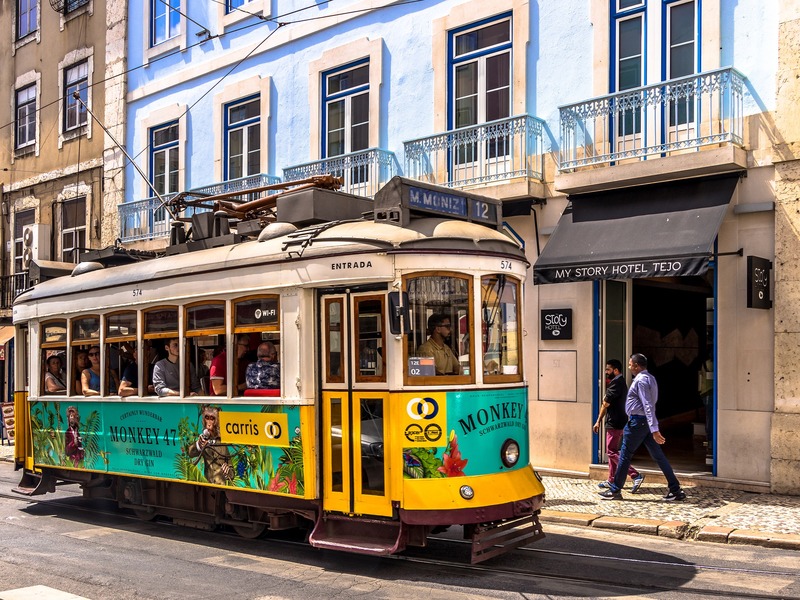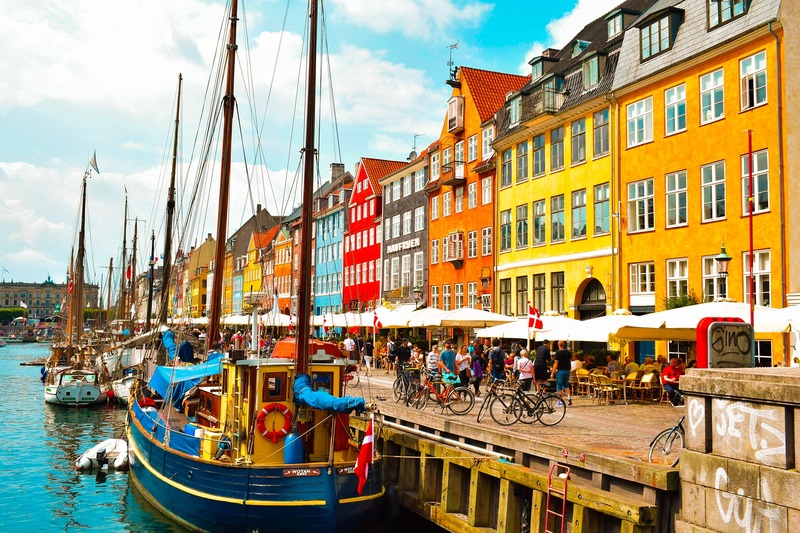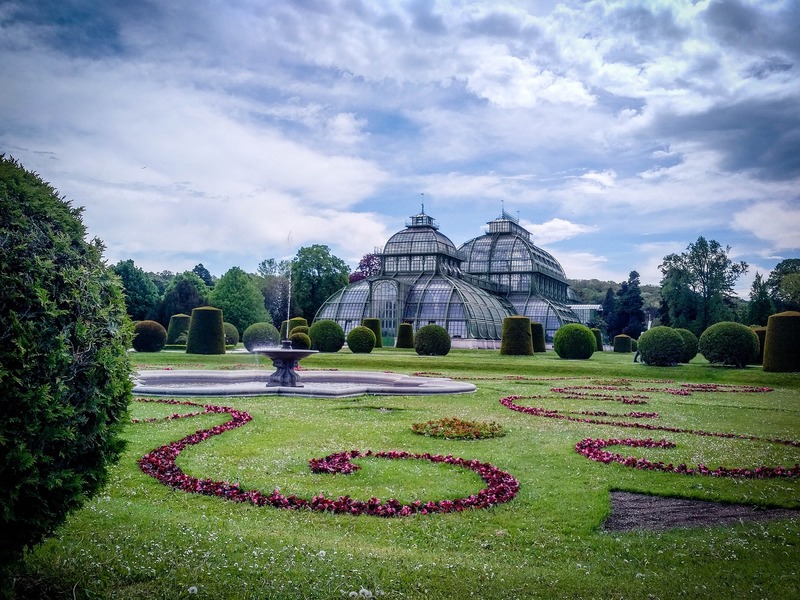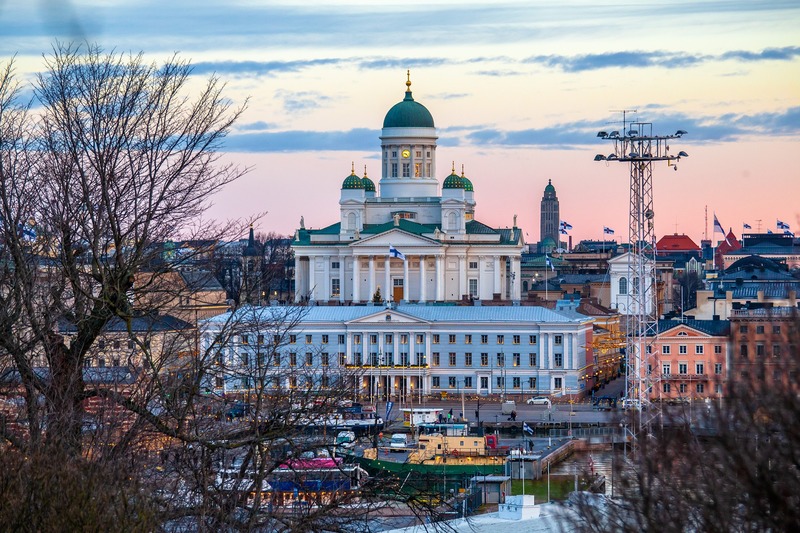Thessaloniki gets ready for its metro launch in November
The underground rapid transit lines have been under construction for almost two decades due to various project delays
 TheMayor.EU logo
TheMayor.EU logo Smart, happy, green: did your city make it to the top?
Most probably by the end of the year you are already tired of hearing bad news and are eager to see 2021 on the horizon. However, even during this extraordinary 2020 dominated by the coronavirus pandemic, there were still some reasons for joy for those of us who live in European cities.
In this publication, we will remind you of some of them by summarizing several rankings published over the last 12 months, in which EU cities excelled. We are certain that they will help you feel a little prouder to be European.
One of the greatest advantages of being an EU national is that your EU citizenship grants you the rights to live and work in any other member state. So, chances are high that you are already an expat (a person living outside of their country of origin), have been or are currently considering making such a change.
So, if you are on the lookout for opportunities to settle down out of your country of residence, the best cities you might choose from are on the Iberian Peninsula, according to the Expat City Ranking 2020. A survey of more than 15,000 expats of 173 nationalities conducted in early spring placed Valencia, Alicante and Lisbon in top 3. Other destinations with good weather, Malaga (6th place), Madrid (9th place) also made it to the final 10.
Expats living in the cities included in the ranking were asked to rate their life abroad in over 25 different aspects, such as leisure and climate, transportation, safety and politics, etc. Apparently, what sent Valencia to the top is the affordability and availability of its healthcare, the leisure opportunities and good weather – all these make it a perfect place for living, but not so much for work, as it can be difficult to get employment there.
According to expats, it is particularly easy to get settled in Alicante, to find accommodation and get stable finances. Much like its Spanish neighbours, the Portuguese capital of Lisbon is appreciated for its good weather, leisure opportunities, the ease of getting settled and its life quality.
 Expats describe Lisbon as a wonderful place to feel at home
Expats describe Lisbon as a wonderful place to feel at home
Another essential part of our daily routines as Europeans is sustainable mobility and cycling And cycling makes up a large part of it.
This year, over 600 cities with 600,000 + inhabitants competed for first place in the 2019 edition of the Copenhagenize Index. Based on a variety of 13 indicators, relative to how each city promotes cycling (incl. infrastructure, priority to bikers, safety, etc.), Copenhagen took the first place with a minuscule margin, ahead of Amsterdam and Utrecht. It is worth mentioning that out of the top 20 cities in the ranking, 14 are located in the European Union.
 Bikes are welcome practically everywhere in Copenhagen
Bikes are welcome practically everywhere in Copenhagen
Vienna is without any doubt one of the greenest cities in the world. Its policies in the field of sustainable development this year helped it to top the Resonance Consultancy’s World’s Greenest Cities List for 2020.
For this ranking, Vienna showed high results in the field of parks and recreation, sustainable public transport, recycling and composting, healthy local food. The Austrian capital is also a wonderful place for a stroll with extensive pedestrian areas.
Not surprisingly, the top 10 includes 5 other EU cities: Munch and Berlin – 2nd and 3rd places, Madrid with 4th, Lisbon with 7th and Amsterdam with 9th.
 No matter the season, Vienna is always a good choice for those who seek serenity and inspiration
No matter the season, Vienna is always a good choice for those who seek serenity and inspiration
The Smart City Index ranks cities based on economic and technological data, as well as by their citizens’ perceptions of how “smart” their cities are. The Institute for Management Development (with offices in Singapore and Switzerland) and Singapore University for Technology and Design this spring surveyed hundreds of citizens in 109 cities.
Questions, related to the technological solutions offered in each city in the fields of health and safety, mobility, activities, opportunities, and governance gave first place to Singapore, Helsinki and Zurich. Copenhagen and Amsterdam scored 6th and 9th, respectively.
Albeit this is not a pure victory for EU cities, those who have been following our Smart City section, know pretty well why there are so many EU cities to be found on the list. All of them have given numerous examples of how intelligent technologies can make life easier for their residents, guests and the business.
Helsinki, the second smartest city worldwide, perfectly mobilizes tech innovations for the benefit of all
Finally, what’s more important to a city than the happiness of those living within it? With that question in mind, the World Happiness Report decided to rank cities worldwide based on the current life evaluation of their citizens.
To be more precise, for the first time they added cities to the existing list of happiest countries, which, by the way, has lately been dominated by Finland.
According to the list of 186 cities published in March by researchers from Oxford and the London School of Economics, the place in the world where people experience the most well-being is once again the Finnish capital of Helsinki. Unsurprisingly, 3 other EU cities made it to the top 10 – the silver medal goes to Aarhus and Copenhagen took the fifth spot. The Swedish capital Stockholm, meanwhile, placed 9th.
The ranking, of course, is subjective, as it relies mostly on Gallup polls, in which respondents who live in a particular city evaluate how they feel about it on a scale. But after all, happiness is nothing but subjective.
Many other examples can be given to complete the list, and surely, you know of other areas where EU cities are doing a spectacular job. The abovementioned examples are just illustrations that forward-thinking local governments, together with demanding citizens, can get through every challenge.

The underground rapid transit lines have been under construction for almost two decades due to various project delays

Now you can get your wine in Talence by paying directly in Bitcoin

That’s because the state has to spend money on updating the railway infrastructure rather than subsidizing the cost of the popular pass

Rethinking renewable energy sources for the urban landscape

The examples, compiled by Beyond Fossil Fuels, can inform and inspire communities and entrepreneurs that still feel trepidation at the prospect of energy transition

Now you can get your wine in Talence by paying directly in Bitcoin

The 10th European Conference on Sustainable Cities and Towns (ESCT) sets the stage for stronger cooperation between the EU, national and local level to fast track Europe's transition to climate neutrality.

At least, that’s the promise made by the mayor of Paris, Anne Hidalgo

The underground rapid transit lines have been under construction for almost two decades due to various project delays

At least, that’s the promise made by the mayor of Paris, Anne Hidalgo

Hostal de Pinós is located in the geographical centre of the autonomous region

Despite its church-y name, the district has long been known as the hangout spot for the artsy crowds

Urban dwellers across the EU are having a say in making their surroundings friendlier to people and the environment.

Forests in the EU can help green the European construction industry and bolster a continent-wide push for architectural improvements.

Apply by 10 November and do your part for the transformation of European public spaces

An interview with the Mayor of a Polish city that seeks to reinvent itself

An interview with the newly elected ICLEI President and Mayor of Malmö

A conversation with the Mayor of Lisbon about the spirit and dimensions of innovation present in the Portuguese capital














